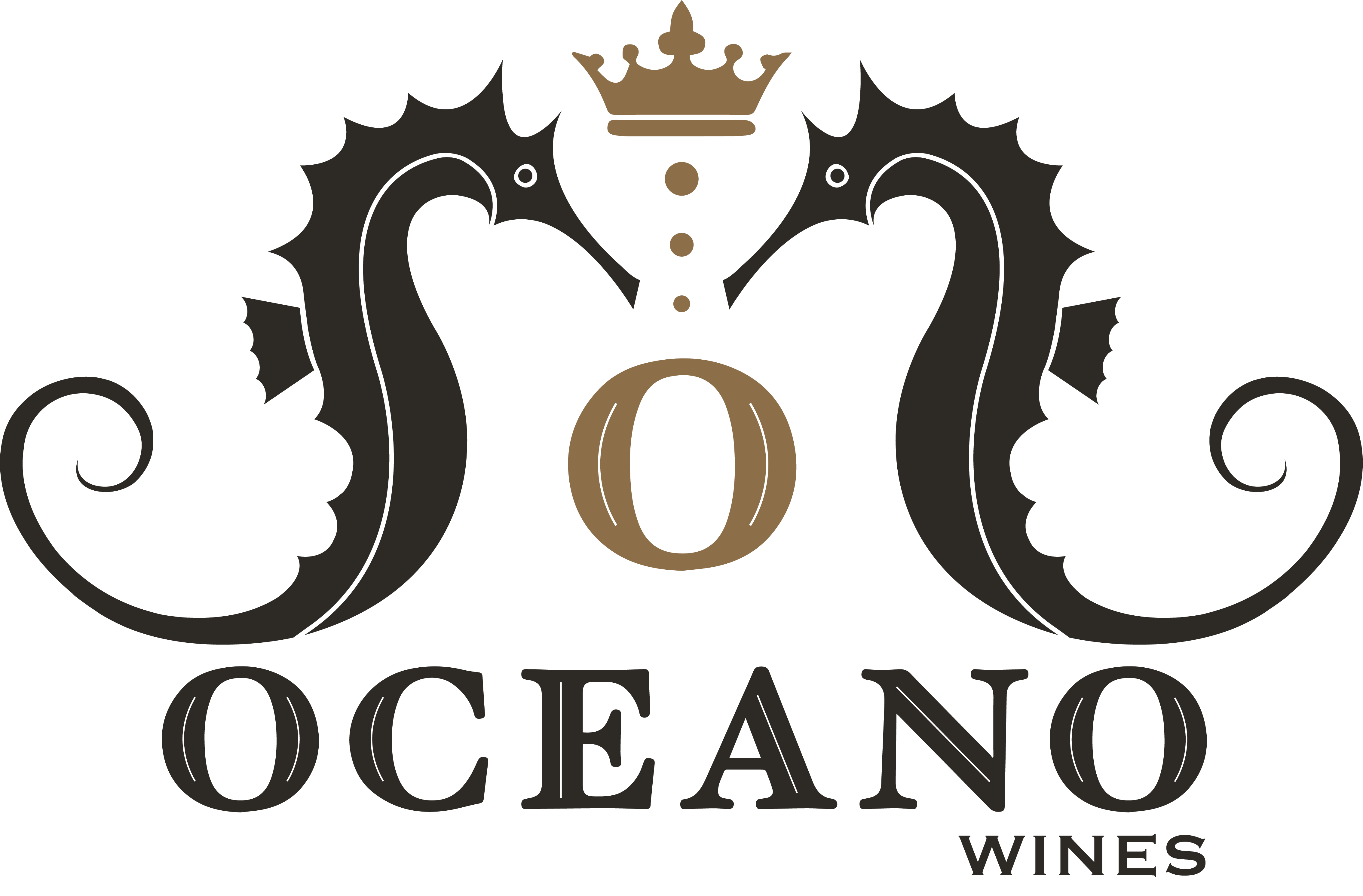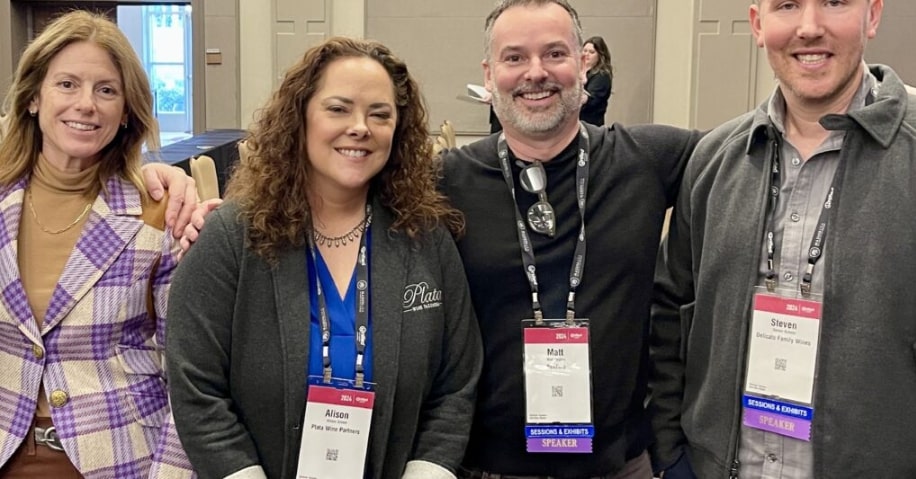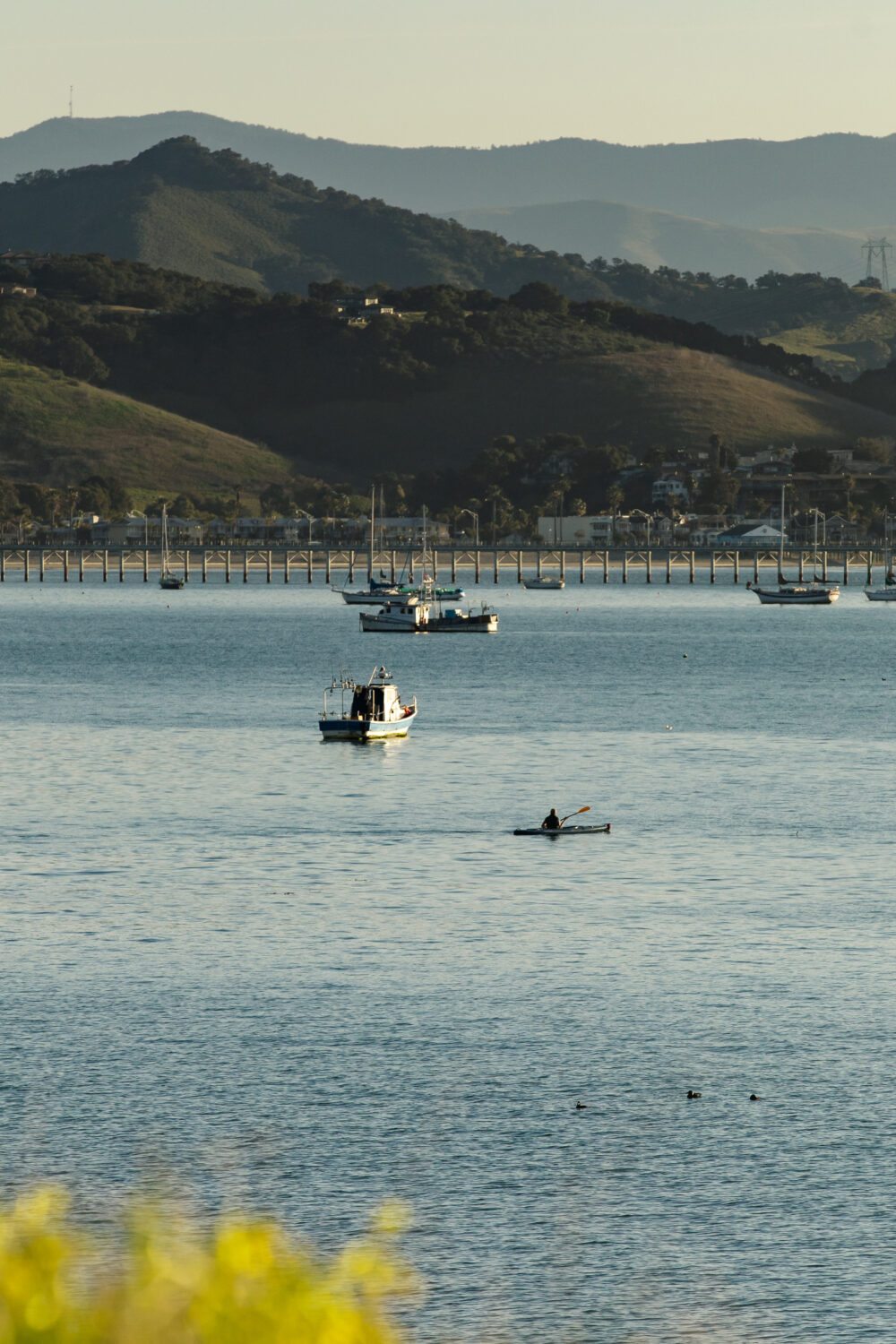Are you interested in getting involved in crafting the best non alcoholic wines? If you are, you’re in good company. In a world where consumers are increasingly health-conscious and seeking alternatives to traditional alcoholic beverages, the market for no and low-alcohol wines is on the rise. But how do winemakers tackle the challenge of creating wines that not only have reduced alcohol content but also taste exceptional and appeal to discerning consumers? This was the focus of a recent Unified Symposium panel discussion about No-Low Alcohol Winemaking held on January 23, 2024, featuring experts from various corners of the wine industry.
Read on to learn how these industry experts are innovating and finding ways for us to savor the sophistication of luxury wine without the intoxicating effects of alcohol.
Meeting Consumer Demands with Innovation and Quality

The panel kicked off with an important question: “How can we make no-low wines that don’t sacrifice the quality wine enthusiasts have come to love about their favorite beverage?” Together with these industry experts, we took a deep dive into the intricacies of crafting high-quality, lower-alcohol wines.
Many are asking themselves if this can really be done. These experts are changing the game and making believers in a market often met with skepticism.
Innovating Without Sacrificing Taste
Matt Hughes from BevZero shed light on the process basics of creating no-low wines. He has explored many different methods to remove or adjust alcohol content in wine. The good news is that the technology and processes he and his team have developed maintain the integrity of the taste and flavor profiles of traditional luxury wines we have come to know and love. There is a growing demand for non alcoholic wine in the US and worldwide, and the team at BevZero is partnering with luxury winemakers to elevate low and alcohol-free wine choices.
Thanks to this level of innovation, consumers no longer need to choose between one or the other. Just as with caffeinated and decaffeinated coffee, crafting high-quality NA wines creates a more inclusive experience—opening up a world of sophistication and elegance in traditional and no-low alcohol wine options.
Navigating Labeling Regulations
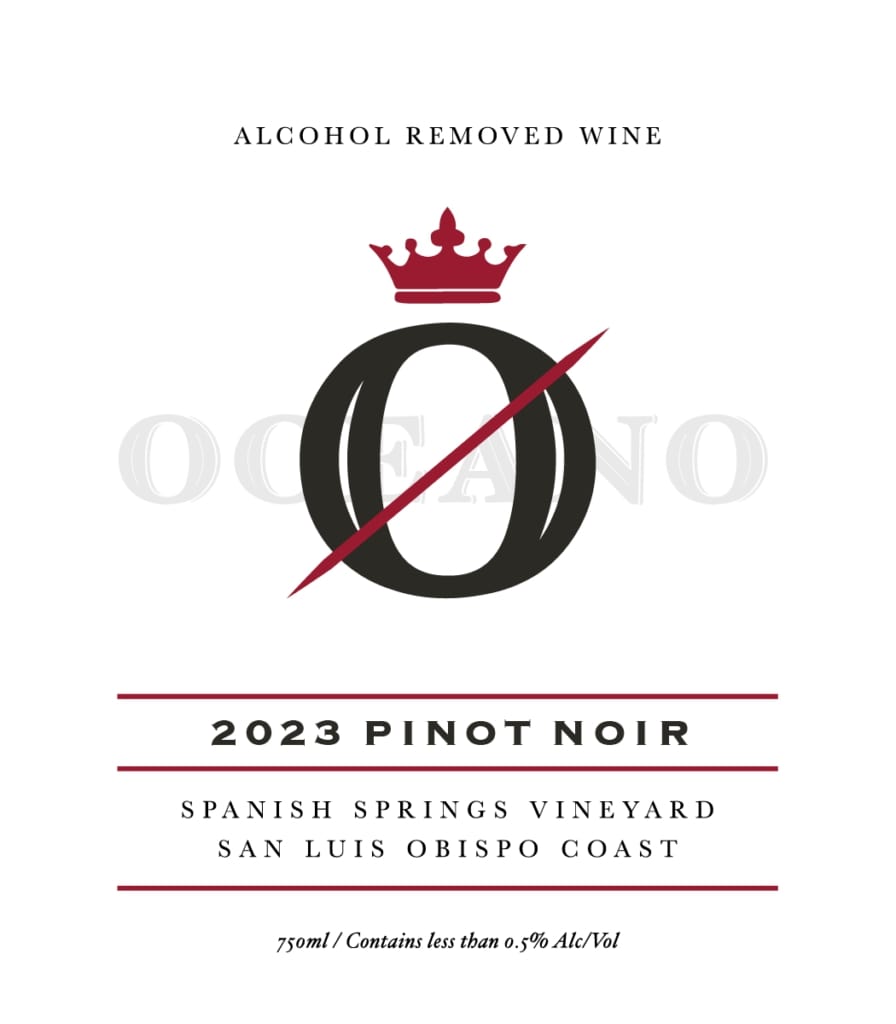
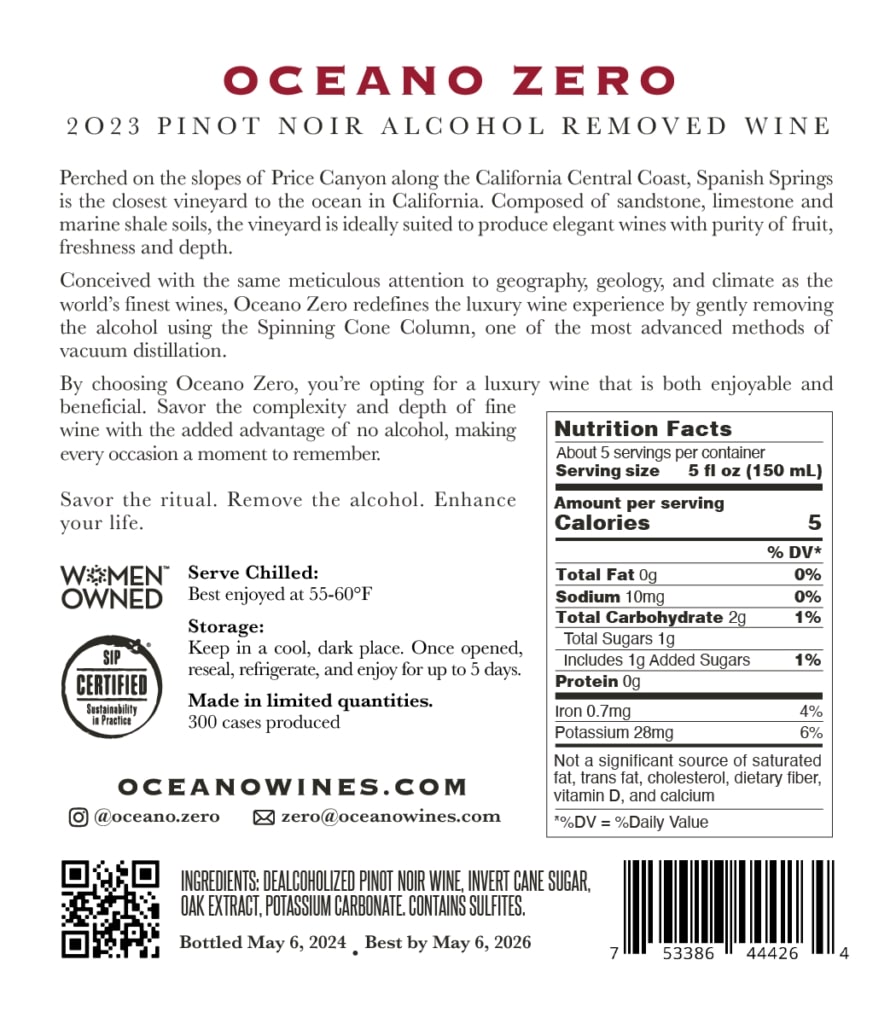
With all this innovation, navigating labeling regulations becomes a crucial consideration for winemakers venturing into the realm of alcohol free wines and low alcohol wines. Hughes shared the importance of understanding the distinctions between FDA and TTB guidelines. The TTB mandates that wines containing less than 0.5% alcohol be labeled as non alcoholic or alcohol removed. The term “alcohol-free” is reserved for beverages with 0% alcohol content. This distinction is vital, as it ensures clarity for consumers. Additionally, wines with alcohol content less than 7% fall under FDA jurisdiction, requiring comprehensive labeling of ingredients and nutritional facts. This not only provides consumers with greater transparency but also underscores the commitment to quality and accountability within the industry.
By adhering to these regulations, winemakers can navigate the regulatory landscape with confidence, ensuring compliance while delivering exceptional products that meet the evolving needs of consumers.
Embracing Tradition and Terroir
At the heart of crafting no and low-alcohol wines lies a deep respect for tradition and terroir. As Founder + CEO of Oceano Wines + Oceano Zero, I was able to add a unique perspective to the discussion. An important aspect of our process with Oceano Zero involves respecting traditional winemaking practices even in the realm of no and low-alcohol wines. It’s this focus that has helped us elevate the NA industry.
Just as with traditional fine wines, it’s important for nonalcoholic wines to focus on quality. If you want to stand out and make an impact, I recommend focusing on quality fruit, gentle processing, and—if aging—using quality barrels with lower oak impact. It’s important that the oak doesn’t overpower the fruit. While this is not news to winemakers, it is an even more important consideration when making dealcoholized wines.
Proper vineyard management, fermentation techniques, and barrel aging are all just as important when making no or low-alcohol wines as when making traditional wines. At Oceano Zero, our approach focuses on creating artisanal wines with a sense of place, challenging the notion that nonalcoholic wines must sacrifice complexity and character. On the contrary, consumers can enjoy all they love about wine—the taste, the celebratory elevation, the sophistication—without the negative impact of alcohol.
International Perspectives on Alcohol-Liberated Wine
It’s not just consumers in the US who are interested in quality nonalcoholic beverage options. Will Willis of Vinolo Ltd. alcohol-liberated wines provided an international viewpoint. In the panel, he discussed the European marketplace for no and low-alcohol wines. His development journey has included experimentation with yeast, blending techniques, and vineyard sourcing.
Just as the other panelists, Willis emphasized the importance of maintaining quality and authenticity when crafting luxury NA wines. His wines focus on high-quality European-sourced ingredients and meticulous craftsmanship.
No longer do consumers have to settle for glorified juice. Globally, winemakers are creating the best non alcoholic wine experiences that focus on the sophistication enthusiasts have come to appreciate and celebrate with traditional wines. By embracing international collaborations and sharing insights, the industry elevates the quality and authenticity of no and low-alcohol wines worldwide.
Exploring “Lo-Alc” Products and Consumer Preferences
They asked, we listened. Winemakers are working with consumer panels and focus groups to pinpoint how to create products that align with supporting individuals on their mindful drinking journey at all levels.
Steven Kukesh from Delicato Family Wines discussed “Lo-Alc” products, sharing insights into consumer preferences and product development strategies. He discussed the use of consumer panels to refine flavor profiles and optimize production processes. Kukesh and his team are meeting consumers “where they are,” and working hard to cater to evolving tastes and preferences while maintaining brand integrity.
Addressing Key Challenges and Opportunities
Throughout the panel discussion, several themes emerged, reflecting the challenges and opportunities inherent in the no and low-alcohol wine market:
- Overcoming Prejudice: Many are skeptical that high quality can be achieved in a no or low-alcohol wine. As these products are becoming more available in the marketplace, winemakers are working hard to overcome skepticism from both gatekeepers and industry peers. We aim to challenge existing perceptions about the quality of NA beverages and provide useful information to educate consumers about winemaking. The more you learn about the process, the more you will appreciate the journey which will enhance your enjoyment of both traditional and no-low wine experiences.
- Quality and Innovation: Using high-quality ingredients is critical when crafting dealcoholized wine. The panelists all agreed that meticulous craftsmanship and innovative techniques used when creating no and low-alcohol wines help luxury brands to stand out in a competitive market. Consumers benefit from this innovation. Technology has made it possible to craft no-low wine options with rich tannin profiles that are still excellent to taste and pair with fine cuisine. It’s like having your cake and eating it too.
- Consumer Education: Not sure where to start? Reach out to these industry leaders. They are passionate about changing the landscape and educating consumers—not only about the benefits of quality no and low-alcohol wines, but also about the wellness benefits of mindful drinking. We want to support our industry while finding ways to help empower consumers to make informed choices.
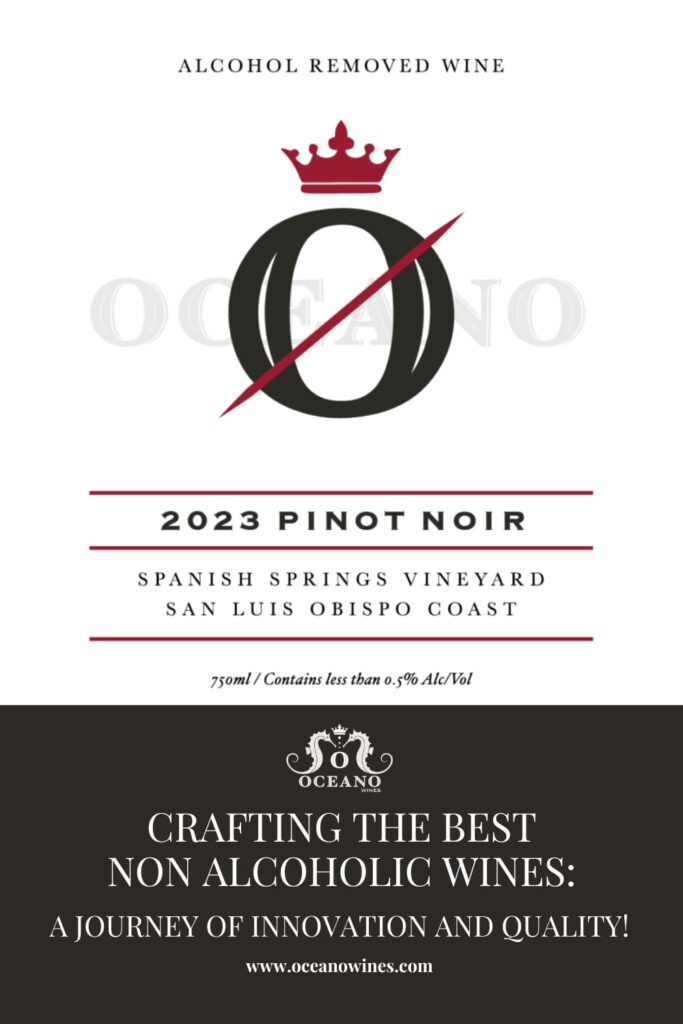
Looking Towards the Future
The future of no and low-alcohol winemaking is bright, fueled by innovation, quality, and a commitment to consumer satisfaction. As winemakers making the best non alcoholic wine, we have the opportunity to explore new horizons and discover the richness of dealcoholized options without compromising on taste or tradition. Let us embrace this journey with enthusiasm and curiosity, knowing that the best is yet to come. Cheers to a future filled with the best non alcoholic wines that delight the senses and nourish the soul.
